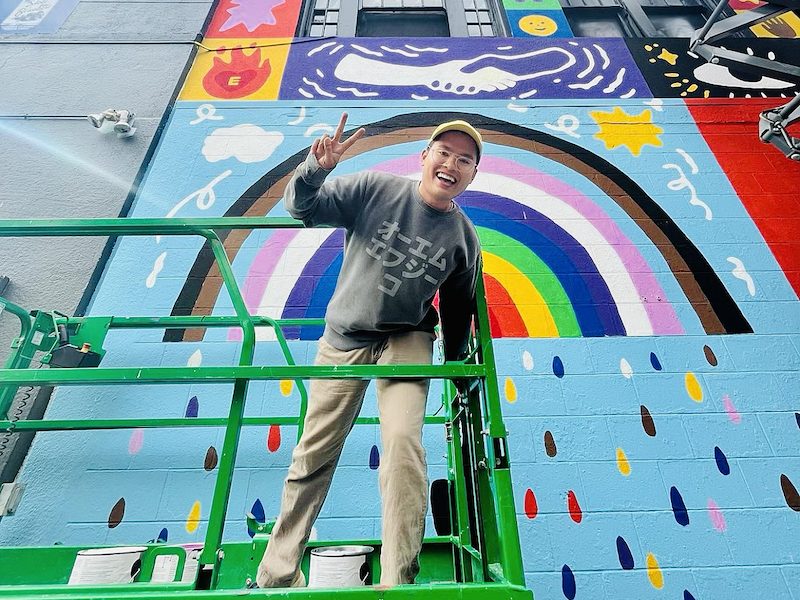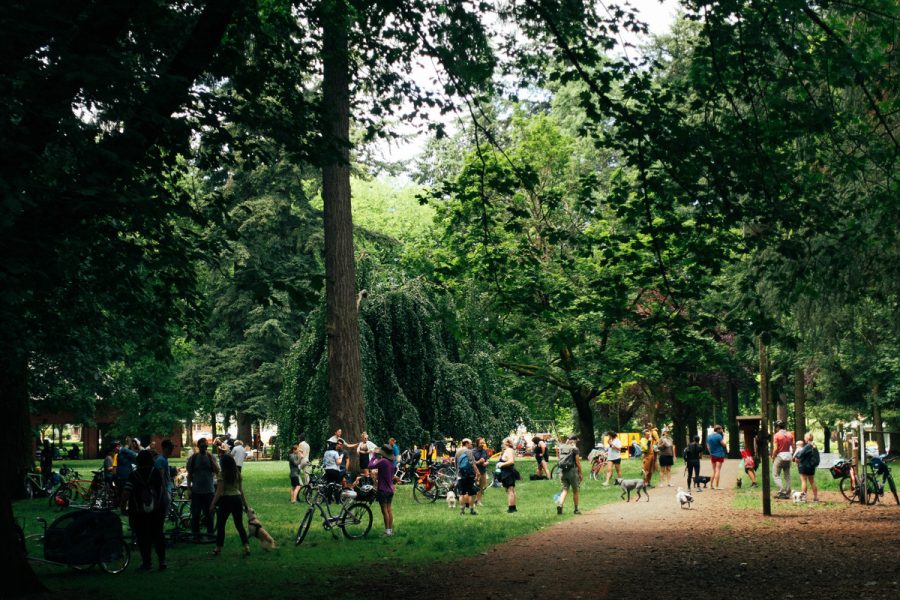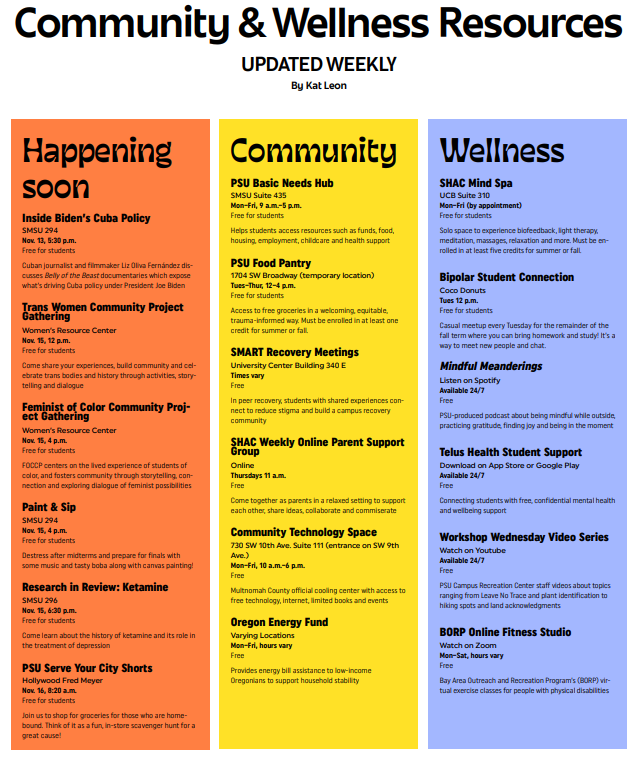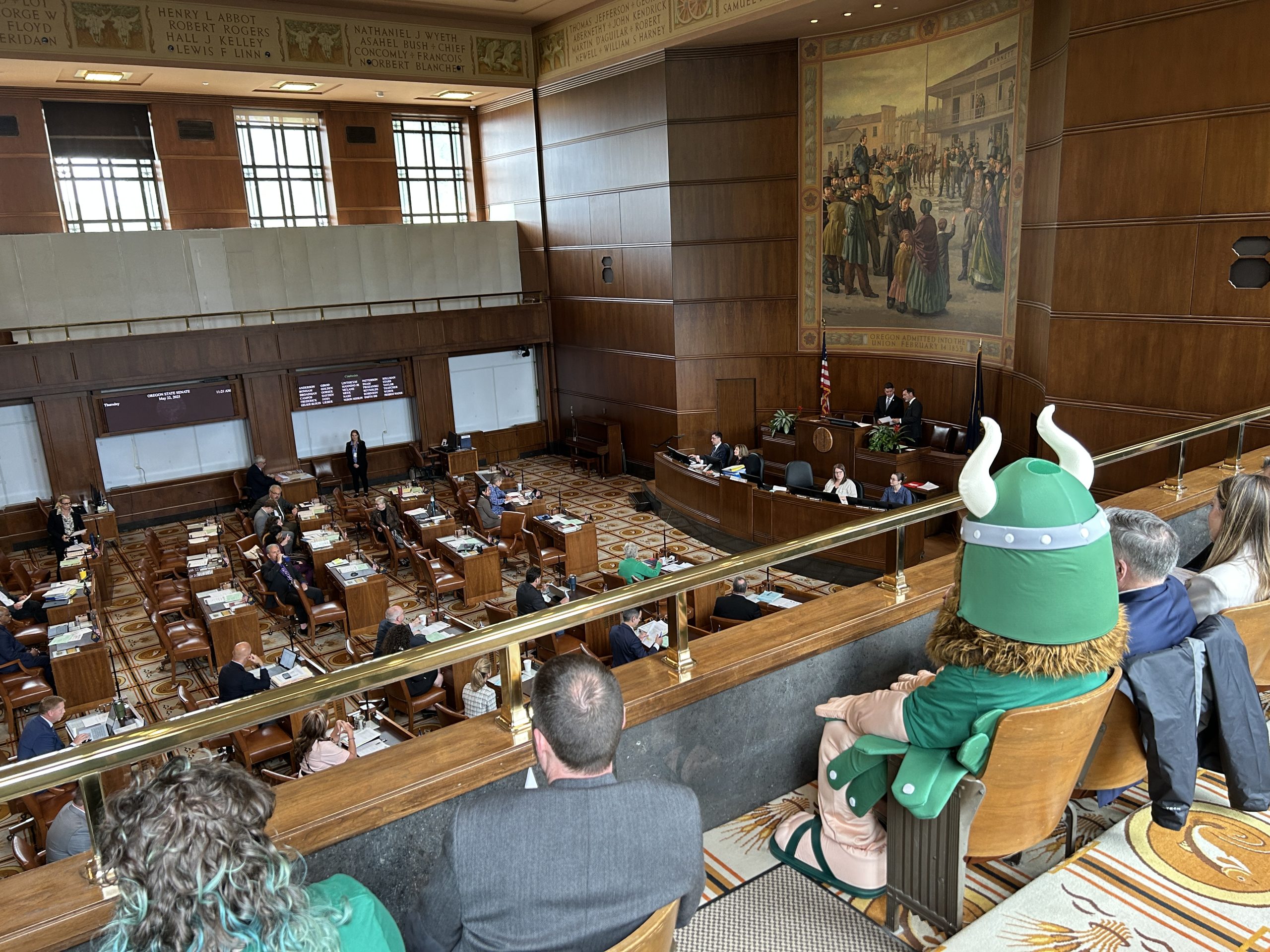In an email headed “Message from President Percy,” Portland State University President Stephen Percy announced to the PSU community on May 13 that he would retire when his three-year term expires at the end of next year. After many years working in higher education, Percy wrote that “it was always my intention to embrace a new stage in my life.” Portland State Vanguard spoke with Percy about his time as president, the arc of his career and what comes next.
Stephen Percy never intended to become a university president. He entered the role during a furor surrounding the actions of his predecessor, Rahmat Shoureshi, who resigned amid an ethics investigation that undermined confidence in the administration. Shortly after Shoureshi’s resignation, the PSU Board of Trustees (BOT) voted to make Percy, then dean of the College of Urban and Public Affairs, acting president.
“I’ll be honest with you,” Percy said. “A lot of my career, I was happy running a research center, working with presidents, doing a lot of projects—so I came into the role of dean, an academic leadership position, a little bit later in my career than other people might have…It was never in my sights to become president. I was enjoying being a dean, and I sort of anticipated staying in that role for a while.”
The step up to president came suddenly, under somewhat amusing circumstances. “I was in my driveway,” Percy explained, “on my knees…in a t-shirt and shorts on the driveway potting, and the phone rang, and it was then-chair of the Board of Trustees [Gale Castillo] saying, ‘Steve, would you be willing to step into [the position of acting president]?’ And so I said, ‘Can I think about it a little bit?’ to which they said, ‘Overnight, sure.’ But they needed to get someone in there.”
“So I thought about it,” Percy said. “About what I thought I would be able to contribute to [the administration], and what it would be like. And I said the next day that yes, I would be willing to do that. It would be my privilege to help the institution in a period of leadership transition.”
That was all he thought of the job at first—a transitional role. However, when the BOT offered a three-year term as president, Percy decided it was best to accept the job for a full term. “It’s been, actually, the privilege of my lifetime to serve in this position,” Percy said. “But it was not the plan.”
Percy’s tenure as president has been marked by challenges such as community frustration and anger over a slow roll-out of disarming campus security patrols, financial difficulties and the impact of the COVID-19 pandemic. Speaking on the uncertainty of the last few years, Percy said, “I don’t think any of us will know for a while…what the pandemic has really meant…It was a challenge for everybody. A challenge for everybody living through it, a challenge to lead through it.”
“The pandemic caused those things which were routine to become no longer routine,” Percy said. Some challenges through the pandemic, he recounted, have included determining whether to hold classes in-person, what health precautions to institute on campus and how to best offer online instruction. Some things may remain after the pandemic is over, he said, such as online advising.
“The notion of hybrid [instruction]—that is, some things online and some things in-person—is probably going to be a major thing we come out of the pandemic with,” Percy said. “But how do we do that right? We’ll be thinking about that.”
In his last year, Percy looks to continue his unfinished work as president. “I’m going to be very active, maybe even doubly active, because I want to get some things accomplished,” he said. One of his priorities is racial justice and equity. “That’s important work…You don’t resolve generations of discrimination and injustice by a year or two of effort.” He also cited PSU’s climate change initiative, saying it was important to consider “how can PSU, in a more active and visible way, organize some of our work in engagement, our work in research and our work in teaching and learning to focus on climate action.”
Percy said he is looking forward to the next stage of his life with mixed emotions. “I am bittersweet about it,” Percy said. “Many people say to me, ‘congratulations on your announced retirement,’ and they mean exactly well, but it doesn’t resonate well with me. First of all, I’ve got a year left. Second of all…I love the institution, and I love the work.”
He struck a note of optimism when discussing the 2022 PSU graduation ceremony. “It was my great privilege, a weekend ago, to congratulate 5,950 students who graduated,” he said. “And they persevered. And much of our conversation—the student speakers and myself—was ‘Wow, we made it, even through this.’ The joy in people having graduation for the first time in three years was great. There was such energy.”
The search for a new president is already underway. In a resolution passed on May 16, the BOT announced that it would establish a presidential search committee to advise the board chair in selecting a nominee. The board chair will appoint members of the search committee, and the resolution advises the chair to include various community constituency representatives, such as a representative from the American Association of University Professors, an undergraduate student and the president of another public university in Oregon. The search committee will then field potential candidates and produce a report for the board chair recommending a nominee.
Though he is entering his final year, Percy made clear that he is not done with the job. “I’m not going to be a lame duck, coasting out,” he said. “I refuse to do that.”






